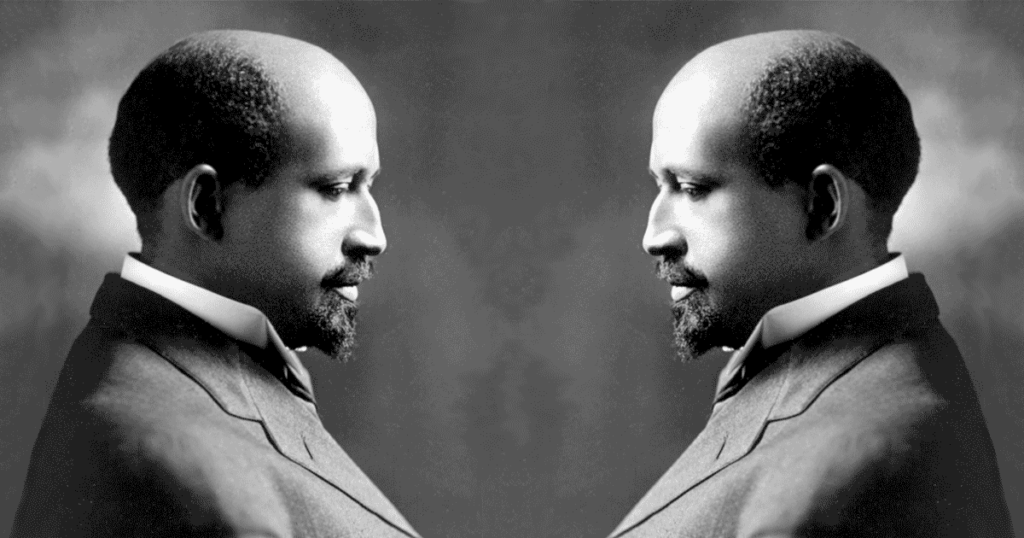
The other day I saw somewhere online (though I can’t seem to find it again) a passing reference to myself as a kind of black person who does not suffer from the internal conflict W. E. B. Du Bois famously described as “double consciousness.” For Du Bois, being categorized as black meant “always looking at one’s self through the eyes” of whites and in turn “measuring oneself by the means of a nation that looked back in contempt.” The implication of the online comment was necessarily critical—a higher-brow formulation of the familiar charge of selling out (or buying in), as though the psychology of the black experience must never change. I’ve been reflecting on this assumption off and on all week.
Growing up, I certainly had feelings of double- (and triple-!) consciousness—being “black,” being “mixed,” being other than my oh-so-“pure” Irish-Polish-Italian classmates at the Catholic schools I attended. (This was also true, as it would have been for the extremely light-skinned Du Bois, of my relation to many other blacks.) And this sense of twoness and threeness was still there when I graduated college and moved to New York City. But gradually, almost imperceptibly, as I advanced in my education and career and, perhaps crucially, as I left American society behind for large stretches of time to live in Europe and elsewhere, I seem to have arrived at something like a unified consciousness. An enormous caveat is necessary, of course, because no one is ever unified—we are all fractured, contradictory things, and life would be boring if we were not. But in Du Bois’s framework, though I am always aware of my history and lineage, perhaps it is possible to question the extent to which I really do feel the interposition of the veil of race between the world and me.
And if I do not, why, I wonder—and this is a central question of the book I’m working on—would that be something to regret?

